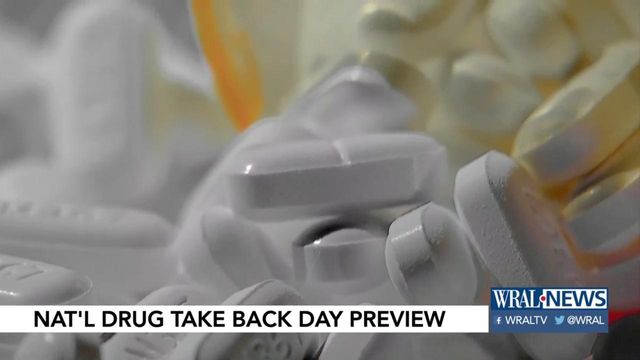Opioid prescription limits take effect Jan. 1
As part of North Carolina's battle against opioid abuse, new rules for how doctors prescribe painkillers take effect Monday.
Posted — UpdatedBeginning Jan. 1, doctors can prescribe only five days' worth of opioids for acute pain, such as after a car crash or a muscle injury or broken bone. After that, physicians can refill the prescription at their discretion.
For pain that follows a surgical procedure, doctors will now be limited to a one-week prescription for opioids. Again, they can prescribe refills as needed, but that first prescription will be restricted.
The new limits don't affect prescriptions of opioids for chronic pain patients, including those with long-term back injuries or people in nursing homes or hospice care.
The idea, advocates say, is simply to reduce the chances that patients will become addicted to the medications and to reduce the number of pills being sent home with people who may not actually need them or take them.
"I think, in the vast majority of cases, that's a good thing," said Dr. Graham Snyder, an emergency physician and opioid educator at WakeMed in Raleigh. "Many times, I hear from people ... 'I hurt my knee, and they gave me this big bottle of narcotics, which I didn't need.'"
In the 1970s and 1980s, doctors under-treated pain because they were phobic about opiates, Snyder said. They then over-corrected, prescribing new versions of potent painkillers for acute pain, as well as chronic pain, discounting the chance that patients would become dependent.
"As physicians, we care about people. We don't want to people to suffer, and it feels very wrong to say to a patient who's suffering, 'No. I know I can take your pain away, but I'm not going to do it,'" he said.
Doctors now understand, he said, that anyone taking opioids for weeks stands a good chance of becoming addicted.
"Anyone who is given a prescription for opiates for weeks on end, when that stops, there will be withdrawal," he said. "They will suffer. They will sweat, get abdominal cramps, maybe nausea and throw up. They need help."
Snyder said the new limits will help keep extra prescription drugs out of the hands of children and teens, who can become addicted even more easily.
According to the Centers for Disease Control and Prevention, drug overdose deaths have tripled nationwide since 1999.
The number of people dying from overdoses of prescription opioids in North Carolina has actually leveled off in recent years after peaking at nearly 600 in 2008, according to information from the state Department of Health and Human Services. Meanwhile, deaths from heroin overdoses have spiked since 2008, going from fewer than 200 per year to about 600 per year, DHHS data shows.
Still, advocates say, in about half of opioid overdose deaths, the victims overdose on the same prescription drug that was originally prescribed by a doctor.
Snyder said it's crucial to keep opioids available for cancer patients and others in severe chronic pain, but doctors can use them less for other pain.
"It basically took us seeing the body count rise from overdoses and addiction to say, 'I'm sorry. I know you're suffering, but more narcotics is not the answer for you,'" he said.
Related Topics
• Credits
Copyright 2024 by Capitol Broadcasting Company. All rights reserved. This material may not be published, broadcast, rewritten or redistributed.






